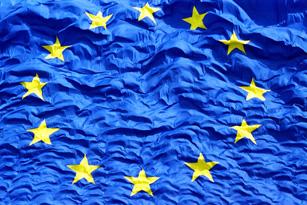
Brussels, 08 March 2015
Speaking on the occasion of the International Women's Day, EU Commissioner for European Neighbourhood Policy and Enlargement Negotiations, Johannes Hahn, underlined the EU's unrelenting commitment to promoting women's rights in the partner countries. 'A lot has been done to fight gender discrimination, but a lot remains to be done. Women continue to face discrimination in many parts of the world: in the most advanced countries, they still earn a lower salary; in the poorest ones, they often face double discrimination: as poor and as women. Everywhere, they are at risk of sexual violence. Domestic violence remains an issue of strong concern in all countries.
The advancement of women's rights is not a matter of choice between the public and private spheres, or between tradition and modernity. The EU will therefore continue to support gender equality in the neighbourhood and enlargement countries, including through projects on the ground that can bring about real change for the women involved.''
Good for women, good for the country
Efforts need to continue to improve the participation of women in politics and the economy. The absence or low participation of women in politics obviously raises the question of the representativeness of political leaders, and has an impact on political priorities by excluding women's concerns and interests.
Gender equality is now recognised as a crucial element of a smart economy: women's active role in the public domain and in business boosts competitiveness and overall economic development.
EU support on the ground – some examples
In Algeria, Egypt, Israel, Jordan, Lebanon, Libya, Morocco, Syria, Palestine and Tunisia, the “Spring Forward” project aims at empowering women politically and economically through the set-up of national consultative groups, training for women, networking among women entrepreneurs and the establishment of an Arab parliamentarians' network.
In Albania, the EU is working on improving women's position in the labour market and supporting vulnerable groups of women such as those at risk of poverty or domestic violence with counselling, training and awareness activities on how to access labour market and social services.
In Kosovo, a project is focusing on empowering victims of domestic violence by supporting their vocational training and promoting sustainable economic independence, enabling their reintegration into society.
In Turkey, the EU is helping the Turkish Employment Agency to implement specific measures targeting women, who represent only 30% of the active labour force. EU-funded training also provides courses for unemployed women on information technology, management and finance. The EU is also continuing to finance projects fighting domestic violence.
In Armenia, the EU is promoting the participation of women in local political life by supporting women candidates running for local elections. In the 2012 elections, 84% of the trained candidates were elected – they had benefited from individual mentoring, advocacy activities and a networking platform.
In Ukraine, the EU supports childcare centres located on university campuses. The often unaffordable price of a baby-sitter kept young mothers away from studying or made this phase difficult. Thanks to this project, they can continue their university education.
More information:
Progress on gender issues is monitored through the annual country progress reports. In the enlargement process, gender equality is included as one of the requirements in the action plans that the European Commission is following up in the context of accession negotiations.
http://ec.europa.eu/neighbourhood-enlargement/index_en.htm
Developments in the area of equal opportunity issues are also monitored in the yearly progress reports of the neighbourhood countries.
Details
- Publication date
- 8 March 2015
- Author
- Directorate-General for Neighbourhood and Enlargement Negotiations
